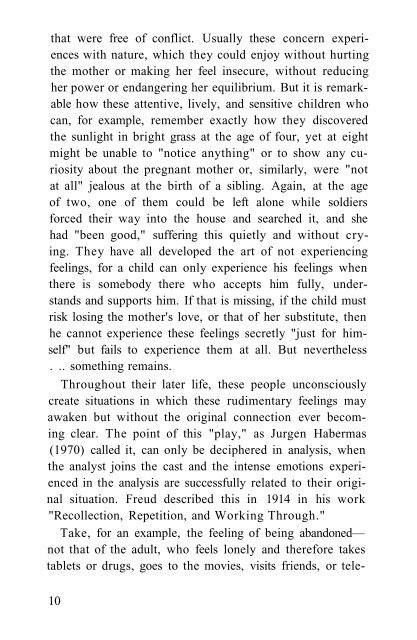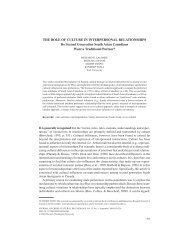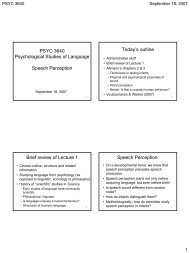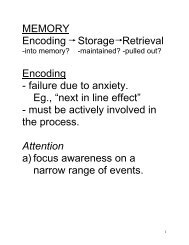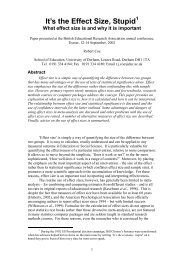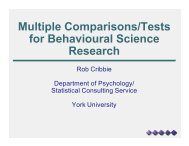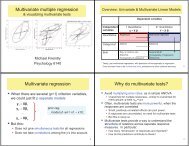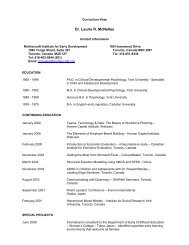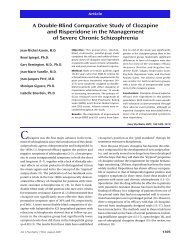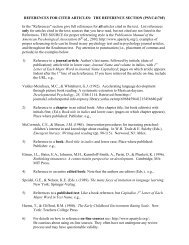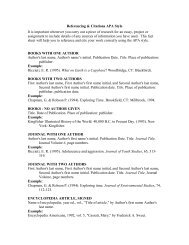The Drama of the Gifted Child (The Search for the True Self)
The Drama of the Gifted Child (The Search for the True Self)
The Drama of the Gifted Child (The Search for the True Self)
You also want an ePaper? Increase the reach of your titles
YUMPU automatically turns print PDFs into web optimized ePapers that Google loves.
that were free <strong>of</strong> conflict. Usually <strong>the</strong>se concern experiences<br />
with nature, which <strong>the</strong>y could enjoy without hurting<br />
<strong>the</strong> mo<strong>the</strong>r or making her feel insecure, without reducing<br />
her power or endangering her equilibrium. But it is remarkable<br />
how <strong>the</strong>se attentive, lively, and sensitive children who<br />
can, <strong>for</strong> example, remember exactly how <strong>the</strong>y discovered<br />
<strong>the</strong> sunlight in bright grass at <strong>the</strong> age <strong>of</strong> four, yet at eight<br />
might be unable to "notice anything" or to show any curiosity<br />
about <strong>the</strong> pregnant mo<strong>the</strong>r or, similarly, were "not<br />
at all" jealous at <strong>the</strong> birth <strong>of</strong> a sibling. Again, at <strong>the</strong> age<br />
<strong>of</strong> two, one <strong>of</strong> <strong>the</strong>m could be left alone while soldiers<br />
<strong>for</strong>ced <strong>the</strong>ir way into <strong>the</strong> house and searched it, and she<br />
had "been good," suffering this quietly and without crying.<br />
<strong>The</strong>y have all developed <strong>the</strong> art <strong>of</strong> not experiencing<br />
feelings, <strong>for</strong> a child can only experience his feelings when<br />
<strong>the</strong>re is somebody <strong>the</strong>re who accepts him fully, understands<br />
and supports him. If that is missing, if <strong>the</strong> child must<br />
risk losing <strong>the</strong> mo<strong>the</strong>r's love, or that <strong>of</strong> her substitute, <strong>the</strong>n<br />
he cannot experience <strong>the</strong>se feelings secretly "just <strong>for</strong> himself"<br />
but fails to experience <strong>the</strong>m at all. But never<strong>the</strong>less<br />
. .. something remains.<br />
Throughout <strong>the</strong>ir later life, <strong>the</strong>se people unconsciously<br />
create situations in which <strong>the</strong>se rudimentary feelings may<br />
awaken but without <strong>the</strong> original connection ever becoming<br />
clear. <strong>The</strong> point <strong>of</strong> this "play," as Jurgen Habermas<br />
(1970) called it, can only be deciphered in analysis, when<br />
<strong>the</strong> analyst joins <strong>the</strong> cast and <strong>the</strong> intense emotions experienced<br />
in <strong>the</strong> analysis are successfully related to <strong>the</strong>ir original<br />
situation. Freud described this in 1914 in his work<br />
"Recollection, Repetition, and Working Through."<br />
Take, <strong>for</strong> an example, <strong>the</strong> feeling <strong>of</strong> being abandoned—<br />
not that <strong>of</strong> <strong>the</strong> adult, who feels lonely and <strong>the</strong>re<strong>for</strong>e takes<br />
tablets or drugs, goes to <strong>the</strong> movies, visits friends, or tele-<br />
10


